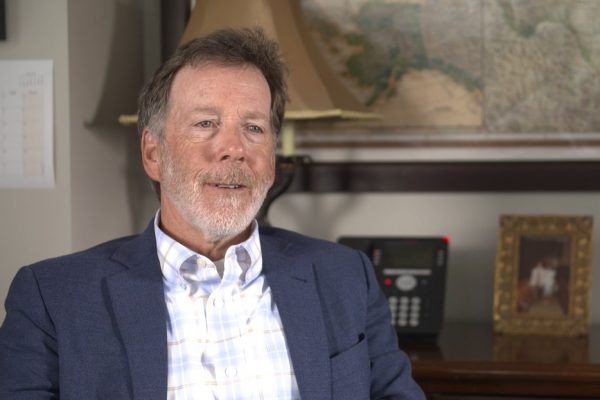As the forest industry continues to become a more dynamic and growing component of the national and global economy, forestry and investment companies seek employees with advanced knowledge and skills to help maximize their sustainable forest and timberland investments.
Auburn University’s new online Forest Business and Investment, or FBI, Master of Science degree within the College of Forestry, Wildlife and Environment, or CFWE, was developed with input from forestry and business stakeholders to ensure the curriculum satisfies the industry’s demand for a workforce that is skilled in business, finance, and investment.
Collaboratively taught with Auburn University’s Raymond J. Harbert College of Business, the non-thesis program provides a balanced curriculum and flexibility to allow students with diverse backgrounds and skill sets to conveniently acquire this knowledge while maintaining their work/life balance.
“In the past 10 to 15 years, there has been a growing interest in academia’s ability to provide additional and advanced skills, and we need that within the industry to encourage and maintain workforce development,” said Marc Walley, Auburn alumnus and president and chief executive officer of Forest Investment Associates in Atlanta. Since his start in forest investments in 1994, Walley has witnessed the industry’s growth and has a unique perspective on its trajectory.
“I would love to see more young people enter the business now. Forestry and related industries tend to be male-dominated, and there is an opportunity and need to bring more women into the industry. With the flexibility of the FBI program, I believe earning a degree online while continuing a career will help attract these demographics to forestry and forest investments,” said Walley.
He is specifically watching for additional demand for sustainable building products and innovative natural resource investment themes to drive interest in forestry, further expanding the need for well-managed forestlands. “You might call it natural capital solutions, where investors can invest in an asset that not only delivers a financial return and tangible forest products that we all need but also generates ecosystem services such as carbon sequestration, clean air and water, recreation, wildlife habitat, and biodiversity,” said Walley.
To keep in step with this development, Walley believes that professionals earning continued education have a leg up in the industry. “It’s important for those entering the workforce to understand how forests function from a natural perspective as well as the economic and investment benefits that can be generated from a well-managed forest,” said Walley.
Walley believes the FBI master’s program can provide a specific benefit to the industry through continued education and training. “More and more of our work is oriented toward understanding and using information to make better decisions and be better managers. Data analytics, financial and investment analysis continue to be areas we need to improve. I think this program will have a huge impact on developing these technical skills,” said Walley.
As a professional in forest investments, Walley sees the importance of career development to young foresters. “I feel that the FBI program will help graduates fill a niche by allowing them to continue their career path while earning an education that is directly applicable to their area of interest, making their work more meaningful and enhancing their job prospects.”
Walley also sees the program’s benefit to employers. “From an employer perspective, that employee can start contributing more to their role immediately because they’ve gained a broader skill set. Considering tuition reimbursement for an employee pursuing this degree is a great investment with a solid return for the company. And if any of us here at Forest Investment Associates were hiring somebody in a forestry or forest investment-related role with the FBI graduate program on their resume, it’s certainly going to move that resume up the pile.”
To learn more about the online FBI master’s program, visit the CFWE website.
(Written by Avy Elmore)
Quick Facts
- Non-thesis (no research, courses only)
- Convenient, online courses
- 31 credit hours required
- No GRE required
- Learn from expert faculty and industry leaders
- Enrollment open spring and fall!










